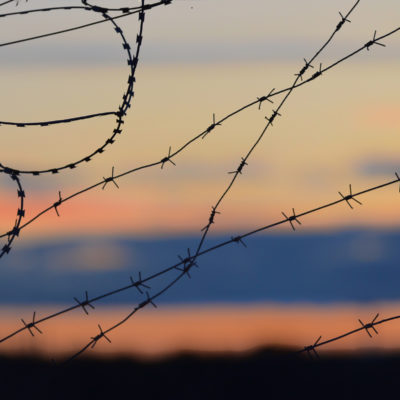Angel of the Battlefield
Composed by Cecilia McDowall, lyrics by Clara Barton and Seán Street.
 Each of the composers has written a programme note to accompany their Composeher work. Read about Cecilia’s piece, Angel of the Battlefield, below.
Each of the composers has written a programme note to accompany their Composeher work. Read about Cecilia’s piece, Angel of the Battlefield, below.
Angel of the Battlefield is inspired by the outstanding work of the pioneering American nurse and founder of the American Red Cross, Clara Barton, and had the pandemic not intervened the work would have received its first performance in 2021, the year of the bi-centenary of her birth. Clara Barton, by all accounts, was a rather redoubtable woman who achieved so much in her lifetime and, it seems, all in spite of male obstructiveness. Self-taught in nursing care she worked as a hospital nurse in the American Civil War. Her humanitarian outlook on life and advocacy of civil rights was far in advance of her time. The poet and broadcaster, Seán Street, has drawn on her letters, diary and poetry to give immediacy to the situation she immersed herself in.
As I was writing the first movement of this a cappella work news of the murder of George Floyd by a police officer in Minneapolis came through in May 2020. It seemed a most natural impulse to respond in some way to this atrocity. Angel of the Battlefield is based, fundamentally, on the concept of healing so I felt the spiritual, There is a balm in Gilead, would sit comfortably in this context. But I have subsequently felt the need to justify its inclusion; that this was no act of cultural appropriation on my part. There are connections in this country with the Wesleyan tradition regarding the genesis of this spiritual and the text is largely shared with the Afro-American community of the mid-19th century so I feel America and our country can each lay claim to its provenance. There is a balm in Gilead is a simple arrangement embedded into the close of the first movement. The text of this movement is a fusion between Seán Street’s poetry and Clara Barton’s writings and gives some insight into the horrors of the American Civil War.
The second movement, one of reflection, brings a softer touch to the work, a spelling out of what one needs to be an ‘angel’ in times of war: ‘I never realised until that day how little a human being could be grateful for.’ Clara’s approach to healing, to caring for the wounded, was more about keeping her own thoughts at bay and focusing on the ‘need’ of those in difficulties. So, as an ‘angel’, bread and water were the key to helping the wounded and she seems always to have been able to offer help when it was so keenly needed. As a movement, despite Seán’s beautifully crafted separate voicing, I see the whole movement as Clara’s expression of what she felt, morally, was the right thing to do in time of war. The rather monotone passages I hope will convey Clara’s resolve in ‘doing the right thing’ by her wounded soldiers. But perhaps one could think of it in another way…that there are two strands to this; a softer overall assessment of the situation in her mind and an inner voice (Clara’s words in italics) pushing, with great purpose, to achieve the best outcome for her soldiers in the field hospital.
The final movement details the horror of war in a breathless choral response:
‘To follow the sound of the guns along blood road.
The Fires of Fredericksburg still blaze before my eyes.’
After the American Civil War Clara Barton realised that the War Department seemed incapable of dealing with the thousands of letters from distraught relatives asking for the whereabouts of their missing soldiers who were being buried in unmarked graves. So she wrote to President Lincoln to ‘respectfully solicit your authority and endorsement, to allow me to act (temporarily) as General Correspondent, having in view the reception & answering of letters from the friends of our prisoners . . . and furnish all possible information in regard to those who have died.’ She was granted permission to begin ‘The Search for the Missing Men.’ Before this time there had been no protocol in place to address these important and poignant issues.
